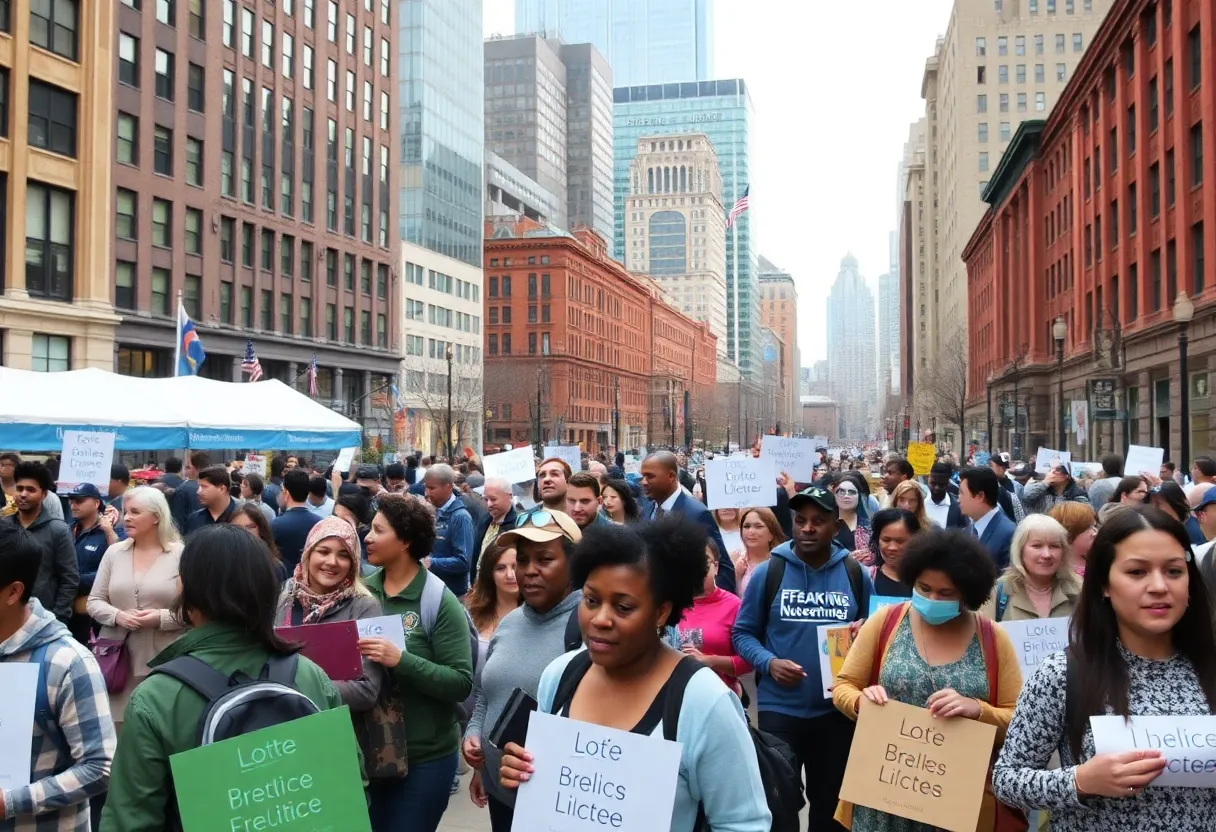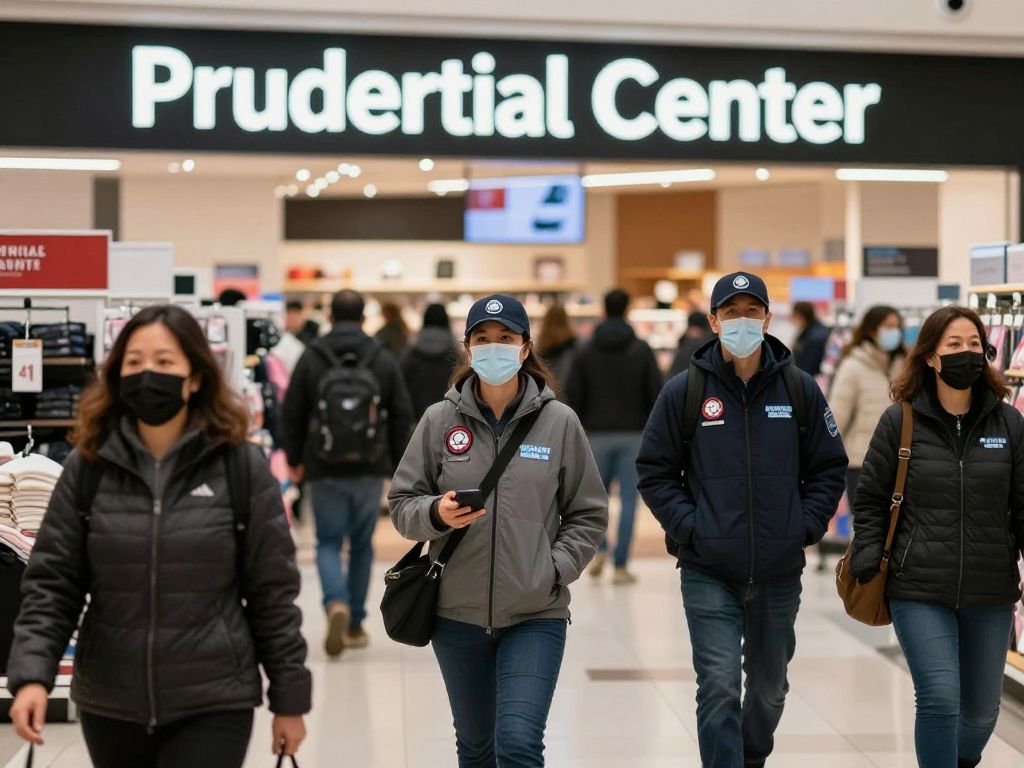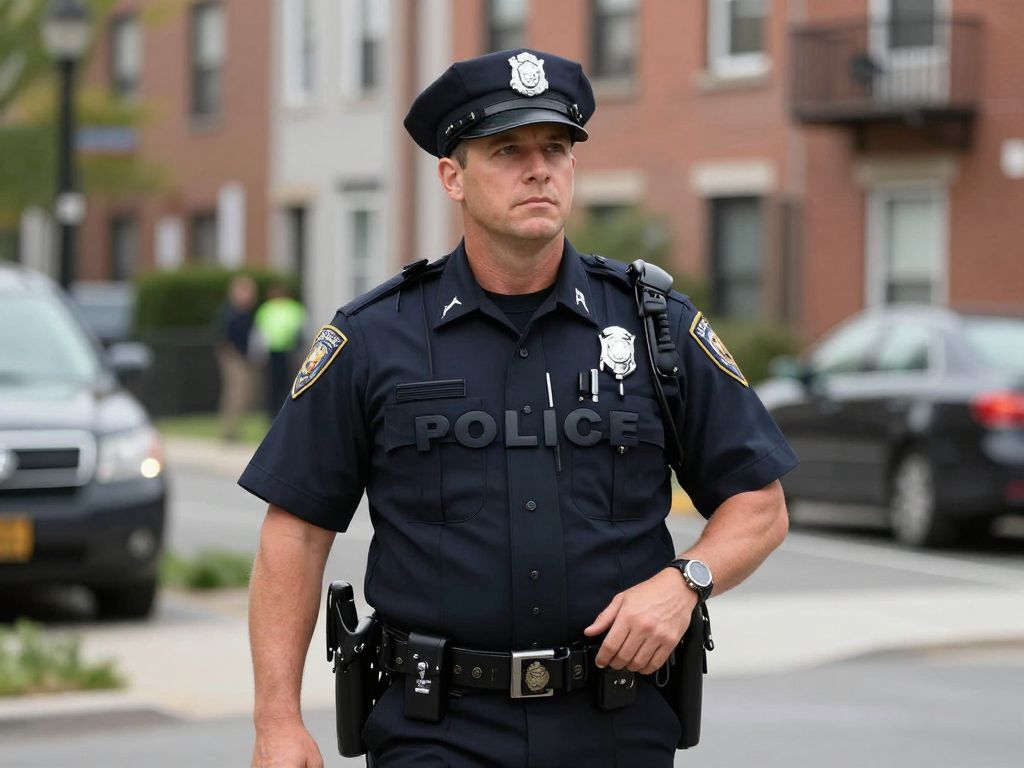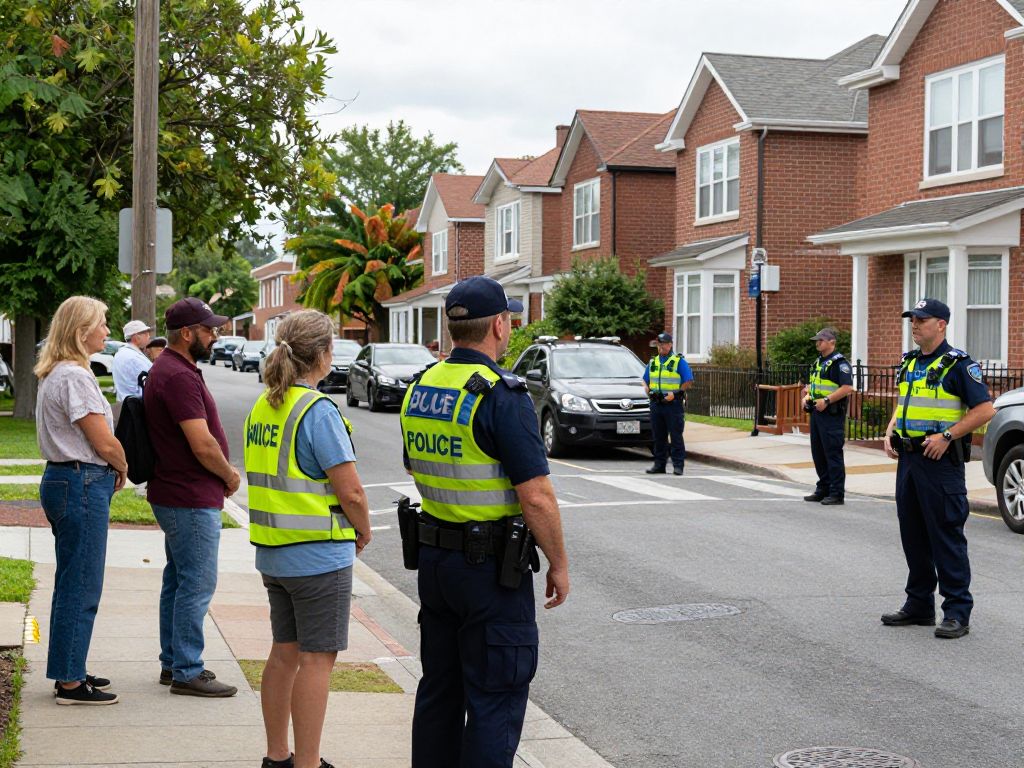Boston, September 29, 2025
News Summary
Mayor Michelle Wu achieved a remarkable victory in the Boston mayoral primary, winning 264 of 275 precincts and securing 72% of the vote. This outcome exemplifies strong voter support while highlighting a divide within the local business community, as some leaders openly supported Wu while others suppressed contributions and lobbied against her initiatives. Wu’s win signals a shift in governance, focusing on issues like housing and public education while seeking collaboration with businesses despite opposition. Analysts suggest that cooperation could enhance solutions to Boston’s challenges.
Boston
Mayor Michelle Wu delivered a decisive victory in the recent Boston mayoral primary, leaving the city business community identified by some observers as the primary institutional loser in the race. Wu won 264 of 275 precincts and secured 72% of the vote compared to Kraft’s 23%, a result that underlined broad voter support across the city and weakened organized efforts by parts of the business sector to influence the outcome.
Key developments
David D’Alessandro, former CEO of John Hancock Financial Services, notes that the biggest loser in the recent Boston mayoral primary is the Boston business community, not candidate Josh Kraft. The comment reflects a wider interpretation of how business leaders engaged with the campaign: while some in the business community offered visible support for Mayor Wu, others mounted a quieter, oppositional strategy that included minimizing campaign contributions and lobbying against her initiatives.
Vote totals and electoral reach
Wu significantly outperformed Kraft in the primaries, winning 264 of 275 precincts and securing 72% of the vote compared to Kraft’s 23%. The margin and precinct sweep signaled strong citywide backing for Wu and reduced the leverage of external interest groups that had hoped to shift policy direction through electoral influence.
Business community stance and strategy
Boston Mayor Michelle Wu maintains strong support from a segment of the business community while facing vocal opposition from others. A significant portion of business leaders pretends to support Wu but discreetly undermines her by minimizing campaign contributions and lobbying against her initiatives. Business opponents perceive Wu as a progressive anomaly and desire a return to traditional leadership with enhanced influence over city governance.
Political message and governance outlook
Mayor Wu has sent a clear message to the business community that she does not rely on their support for governance, asserting her commitment to all Bostonians rather than just the wealthy. At the same time, she has expressed a desire to collaborate with the business community to address practical local challenges such as housing, public education, and transportation needs. Observers urge expanded outreach now that Wu has secured a decisive victory, noting that collaboration would likely accelerate solutions to shared problems.
Impact and city initiatives
Despite signs of indifference or opposition from portions of the business sector, Wu has been effective in attracting companies to Boston and pursuing local economic and housing strategies. Examples cited include Hasbro’s expansion in the city and municipal efforts to convert empty office spaces into housing. These moves have been presented as evidence that the administration can produce tangible results even without unanimous backing from business leaders.
Political climate and broader implications
The current political climate, including threats to social programs and federal crackdowns, raises concerns about having strife between the mayor and the business community at a time when coordinated responses are often necessary. The dynamics of Wu’s election success also illustrate broader trends of resistance against the Trump administration’s policies, positioning Wu as a symbol of democratic values in Boston for some supporters.
Electoral coalition and public safety
Wu’s base-building capability has been compared to that of former Mayor Tom Menino, with an emphasis on broad neighborhood-level support. Her political posture has been described as opposed to the MAGA crowd and supportive of public safety initiatives; administration initiatives are credited by some observers with contributing to reduced crime rates and increasing voter empathy toward her policy priorities.
City Council and endorsements
Wu’s campaign benefited from endorsements and public support on the City Council, strengthening her position in the upcoming election against Kraft. While some in the business community continue to seek ways to regain influence, the election results reduced their immediate capacity to determine city policy through electoral pressure.
Outlook and recommendations
Analysts note that the business community miscalculates the impact of their opposition to Wu, blaming Kraft’s candidacy on their inability to undermine Wu’s efforts effectively. While Wu can achieve a great deal without business support, collaboration would likely result in greater outcomes for Boston. The city faces ongoing needs in housing, transportation, and education that require cross-sector cooperation to resolve at scale.
Frequently Asked Questions
What did David D’Alessandro say about the recent primary?
David D’Alessandro, former CEO of John Hancock Financial Services, notes that the biggest loser in the recent Boston mayoral primary is the Boston business community, not candidate Josh Kraft.
How did Michelle Wu perform in the primaries?
Wu significantly outperformed Kraft in the primaries, winning 264 of 275 precincts and securing 72% of the vote compared to Kraft’s 23%.
Is Michelle Wu the first female mayor of Boston?
Michelle Wu is the first elected female mayor of Boston, having been elected amidst a history of 45 male mayors since 1822.
Did business leaders oppose Mayor Wu?
A significant portion of business leaders pretends to support Wu but discreetly undermines her by minimizing campaign contributions and lobbying against her initiatives.
Quick Reference Table
| Topic | Detail |
|---|---|
| Primary precincts won | 264 of 275 precincts |
| Primary vote share | Michelle Wu 72% · Josh Kraft 23% |
| Notable business reaction | Some business leaders publicly supportive while others minimized contributions and lobbied against Wu’s initiatives |
| Historic note | Michelle Wu is the first elected female mayor of Boston; 45 male mayors since 1822 preceded her |
| Administration focus areas | Housing, public education, transportation, economic development, public safety |
| Examples of city economic activity | Hasbro expansion; conversion of empty office spaces to housing |
Deeper Dive: News & Info About This Topic
HERE Resources
Boston City Council Reviews Stricter Background Check Policies
Mayor Michelle Wu Secures Reelection Victory in Boston
Boston Housing Market: Achieving Homeownership Amid Rising Prices
How To Contact Boston City Council Members
Michelle Wu Runs Unopposed in Boston Mayoral Reelection
Boston’s Mass. and Cass Area Shows Signs of Change Amid Concerns
District 7 Preliminary Election Results Recount Confirmed
Josh Kraft Suspends Boston Mayor Campaign Following Primary Loss
Transportation Secretary Calls for Improved Transit Safety in Boston and Chicago
Boston Election Department to Conduct Mayoral and District 7 Recounts
Additional Resources
- Boston Globe: Michelle Wu and the Business Community
- Citizen Tribune: Boston Mayor Wu’s Reelection Effort
- AP News: Boston’s Mayor Michelle Wu
- New York Times: Boston’s Preliminary Election
- Wikipedia: Michelle Wu
- Fox News: DOJ Sues Boston Over Sanctuary Policies
- USA Today: Wu Faces Challenge from Patriots Heir
- Emerson College Polling: Wu’s Lead Over Kraft
- NBC News: Josh Kraft Withdraws from Boston Mayor’s Race
- Google Search: Boston Mayor Michelle Wu

Author: STAFF HERE BOSTON WRITER
The BOSTON STAFF WRITER represents the experienced team at HEREBoston.com, your go-to source for actionable local news and information in Boston, Suffolk County, and beyond. Specializing in "news you can use," we cover essential topics like product reviews for personal and business needs, local business directories, politics, real estate trends, neighborhood insights, and state news affecting the area—with deep expertise drawn from years of dedicated reporting and strong community input, including local press releases and business updates. We deliver top reporting on high-value events such as Boston Marathon, Head of the Charles Regatta, and Boston Harborfest. Our coverage extends to key organizations like the Greater Boston Chamber of Commerce and Associated Industries of Massachusetts, plus leading businesses in finance, biotech, and insurance that power the local economy such as Fidelity Investments, Biogen, and Liberty Mutual Insurance. As part of the broader HERE network, we provide comprehensive, credible insights into Massachusetts's dynamic landscape.





